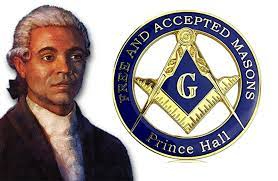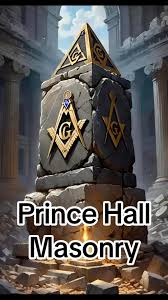 Prince Hall (c. 1735 – 1807) was a visionary leader, abolitionist, and civic pioneer who founded the first African American lodge in the Masonic Order and left a legacy of dignity, brotherhood, and justice. Hall was a leading black citizen in Boston during the Revolutionary War era and played a central role in advancing civil rights, education, and fraternal unity for free Black Americans in the early republic.
Prince Hall (c. 1735 – 1807) was a visionary leader, abolitionist, and civic pioneer who founded the first African American lodge in the Masonic Order and left a legacy of dignity, brotherhood, and justice. Hall was a leading black citizen in Boston during the Revolutionary War era and played a central role in advancing civil rights, education, and fraternal unity for free Black Americans in the early republic.
Little is known about Prince Hall's early years. He is believed to have been born around 1735, possibly in Barbados or New England, and may have been enslaved in his youth. By the time of the American Revolution, Hall was a free man living in Boston, where he worked as a leather craftsman, owned property, and was active in political and religious life.
During the Revolutionary War, Prince Hall and other free Black men petitioned the Massachusetts legislature for the right to enlist in the Continental Army and for broader civil liberties. He helped recruit Black soldiers for the revolution and supported the Patriot cause. He was also deeply involved in the educational and spiritual welfare of Boston’s Black community, advocating for schools and legal rights for African Americans.
In 1775, Hall and fourteen other free Black men were initiated into Freemasonry by a British Army lodge under the Grand Lodge of Ireland stationed in Boston. Unable to join existing American lodges due to racial discrimination, Hall and his brethren established their own lodge, named African Lodge No. 1.
In 1784, Prince Hall petitioned the Grand Lodge of England for a charter to formally recognize the African Lodge. On September 29, 1784, the charter was granted, and the lodge was renamed African Lodge No. 459, making it the first officially chartered Black Masonic lodge in America. This act laid the foundation for what would become known as Prince Hall Freemasonry.
 Legacy and Death
Legacy and DeathPrince Hall spent the rest of his life promoting the principles of Freemasonry—brotherhood, morality, charity, and enlightenment—within Boston’s Black community. He advocated for equal education, an end to slavery, and legal justice. Under his leadership, African Lodge No. 459 became a symbol of pride, resilience, and self-determination for Black Americans.
Prince Hall died in 1807, but his influence continued to grow. Today, Prince Hall Grand Lodges exist in nearly every U.S. state and several other countries, continuing his mission of upliftment, community service, and spiritual fellowship.
Prince Hall’s life and work are a testament to perseverance in the face of exclusion and injustice. As a Masonic pioneer, civic leader, and advocate for African American rights, he carved a place in history that endures through the thriving Prince Hall Masonic tradition.
“We must be judged by our actions, not by the color of our skins.” - Prince Hall